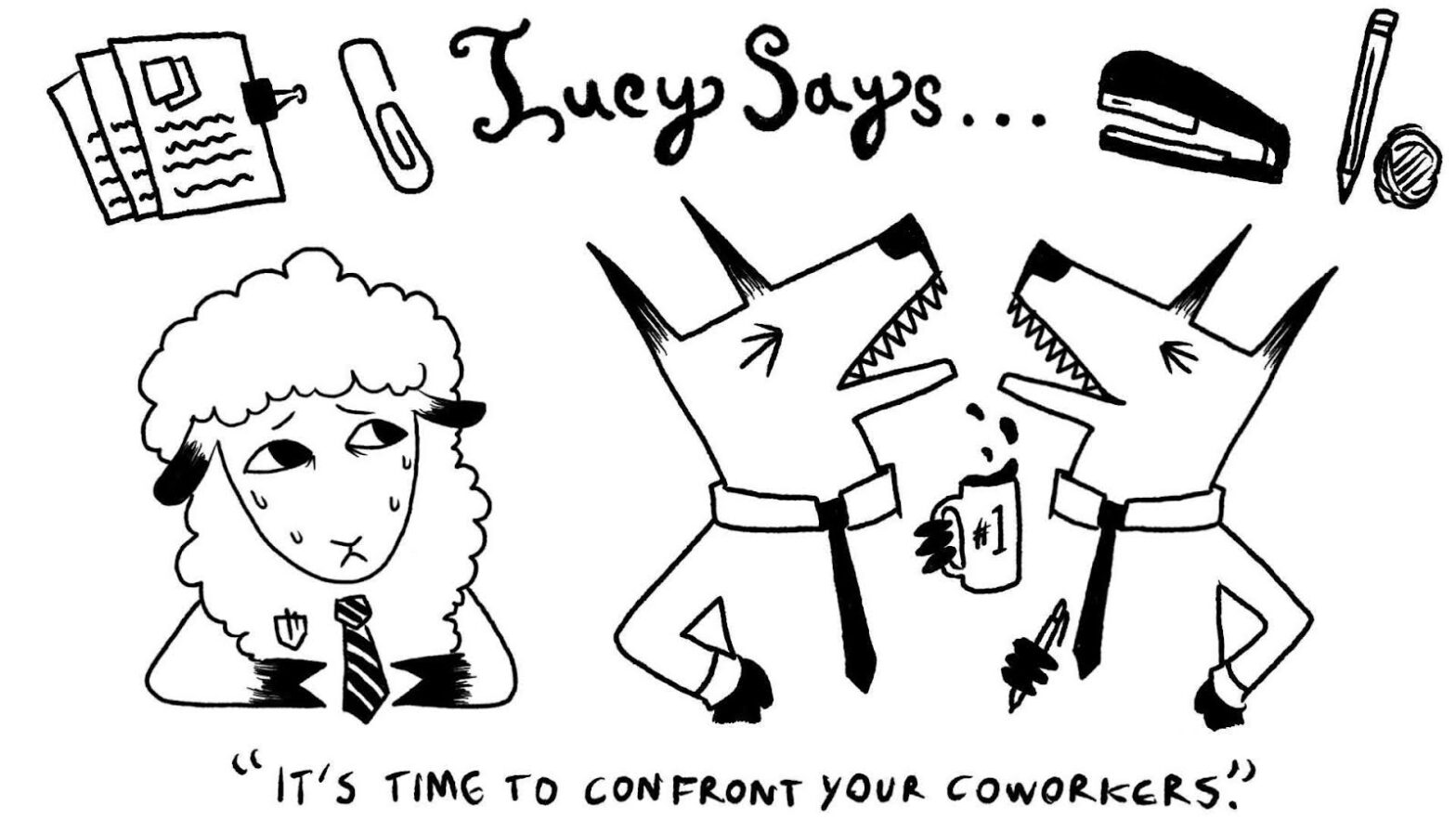Dear Lucy,
I’m having conflicts with my co-workers. They’re pulling a real power trip over me. How do I address this with them?
From,
Workplace Woes
Dear Workplace Woes,
Workplace politics suck. That’s just the truth of the matter. Unless you start your own independent business where the only employee is you, you will eventually find yourself amid workplace tension. We won’t always agree with the people around us, so it’s important that everyone involved says their piece so you can all work together as democratically as possible.
Of course, what you’re describing is its own breed of discomfort: power plays. There are many ways to deal with these. However, they won’t always fix the entire problem, and depending on your workplace, these problems may be nearly impossible to overcome without putting your mental health at risk. If this is you, it might be time to start looking for a new place of work.
However, if leaving isn’t in the cards for you, there are some ways to mitigate the discomfort.
If you aren’t afraid to experience a bit of confrontation, there are some potential immediate solutions. Some people need to be directly told that they are making you feel small. People with the best intentions make mistakes and assumptions that, while unfair, are part of the human experience. Studies from 2017 and 2009 show that in general, speaking up, confronting co-workers, and communicating expectations and perceptions of undesired behavior are essential to team and organizational performance, as well as personnel well-being and organizational survival.
While it can be hard, learning to have conversations with people about things that aren’t working in your workplace is incredibly important. Some researchers call this “conflict competence”; a 2010 study on conflict defines this as “the ability to develop and use cognitive, emotional, and behavioral skills that enhance productive outcomes of conflict while reducing the likelihood of escalation or harm.”
Some best practices for preparing for these conversations include setting a time to talk with some level of privacy beforehand, having a clear set of boundaries to introduce, and focusing on the content of the problem rather than the relationship during the conversation. While difficult, studies suggest that you should also try to enter the conversation feeling as calm as possible; it will make it easier for the person you are speaking with to take in your concerns.
Once you are in the room with your co-worker(s) you should be as direct as possible, but try to remain open to listening and understanding their interpretation of the situation. Use “I” statements to illustrate your points, and ask open-ended questions about their role in the situation. According to a study from 2013, you should also keep in mind that this conversation can only safely and effectively take place in a neutral space where all parties have come to the table with knowledge of a perceived issue and are prepared to try and resolve said issue.
If you need some more guidance around how or when to approach your co-worker, and you haven’t already, try speaking to someone in a more authoritative role who can potentially help you think through resolutions or who can even speak to your co-worker about their behavior.
Your goal is to get your “boss” to address the problematic behavior. The Harvard Business Review’s Amy Gallo suggests you can do this in a number of ways, one of them being bringing some solutions to the table using “What-If” scenarios. If your co-worker keeps overriding your decisions, you might propose a system that alerts your team/manager whenever one of the people on staff makes a decision. If your co-worker is taking credit for work you have done or not giving credit where credit is due, you might propose a new system of presenting your team’s work where every person has the opportunity to explain their additions.
Of course, if your co-worker is in some way harassing you or making you feel unsafe, you should make that very clear. Your higher-ups should work immediately to separate you physically from the person(s) making you feel that way. If they don’t, I encourage you to research what laws might protect you in the workplace and contact your Human Resources or staff services department. You can also contact your local ACLU, a legal body with a focus on justice for disenfranchised groups, if the problem persists and you are not receiving the support you need and are legally entitled to.
Lucky for us, workplaces are not forever. But there is hope and people do have the ability to grow and change. I wish you luck and courage in your conversations, Workplace Woes. Flexing these skills will only make you a more proficient person that is better equipped to deal with the world around you.
Love,
Lucy








Leave a Reply